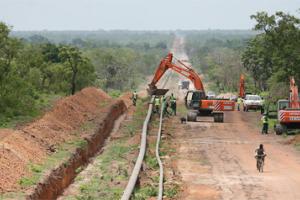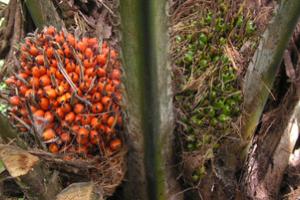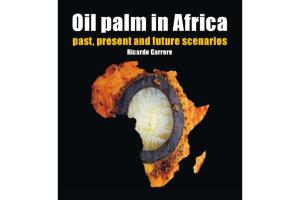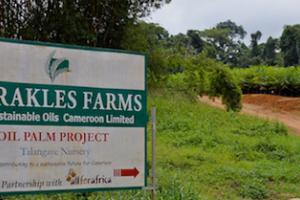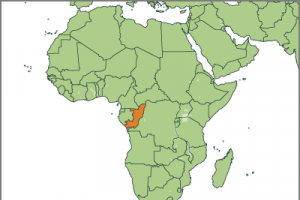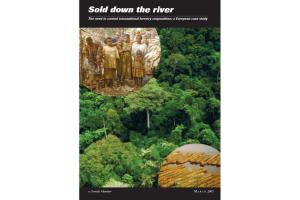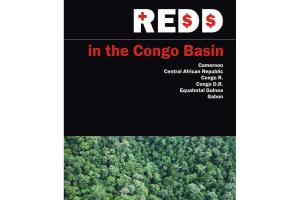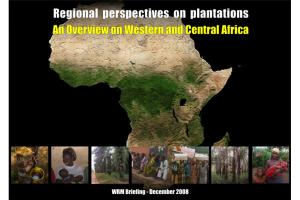Congo R
Bulletin articles
4 July 2014
Bulletin articles
11 September 2013
Publications
30 August 2013
Governments are opening the doors to corporations for planting vast areas of land with oil palm plantations. This trend is not only happening in West and Central African countries, but is even expanding to parts of Eastern Africa. Large scale oil palm plantations are already causing serious environmental and social impacts in some countries, resulting in loss of community rights over their territories.
Other information
17 April 2011
Sold Down the River - The Need to Control Transnational Forestry Corporations: A European Case Study
By Forests Monitor, 2001
Sold Down the River - The Need to Control Transnational Forestry Corporations: A European Case Study
Publications
11 December 2010
The forest of the Congo Basin expands over an area of continuous tropical rainforest cover only second to that of the Amazon forest. Those forests are currently receiving a lot of attention within the Climate Change negotiations.
Bulletin articles
30 December 2009
The Italian oil company Eni is one of the top ten energy companies in the world and now the biggest in Africa. The company is also currently ranked as the world’s most “sustainable” oil and gas company. In September, at the UN Leadership Forum on Climate Change in New York, the head of Eni, Paolo Scaroni announced: “Gone are the days when we could afford to think about oil as a cheap input to economic and social growth, discounting the impact on the environment and on generations to come” .
Publications
15 December 2008
Oil palm and rubber plantations occupy extensive areas in many countries in tropical Africa. In spite of their social and environmental impacts, until now they have received scant attention both at the national and international level.
Bulletin articles
19 June 2007
More and more the rush to use biomass as an alternative source of energy allegedly to reduce CO2 emissions is concealing the unsustainable consumption pattern that underlies global warming and climate change.
Reduccionist approaches focus on solutions which create even greater harm. That is the case of a major European project which has enthusiastically identified industrial-scale eucalyptus plantations as an answer for so said less polluting steel manufacturing processes.
Bulletin articles
23 May 2007
Everyone seems to agree on the need to protect the world’s remaining forests … while forests continue to disappear at the same alarming rate as usual. It is therefore important to distinguish between those who are truly committed to forest protection and those whose deeds and words go in opposite directions. For this purpose, most of the articles included in this issue of the WRM bulletin serve as good examples.
Bulletin articles
26 December 2004
Like many other Third World countries pushed by the global policies of colonialism and later neocolonialism to poverty and indebtedness, Congo has a current debt of $4.9 billion. Like many other southern governments, too, advised by multilateral agencies to commerce their wealth –natural resources-, the government of Congo has been placing greater emphasis on the growth of the timber industry in the Congo Basin, which has the world's second largest stretches of virgin rainforest after the Amazon in South America.
